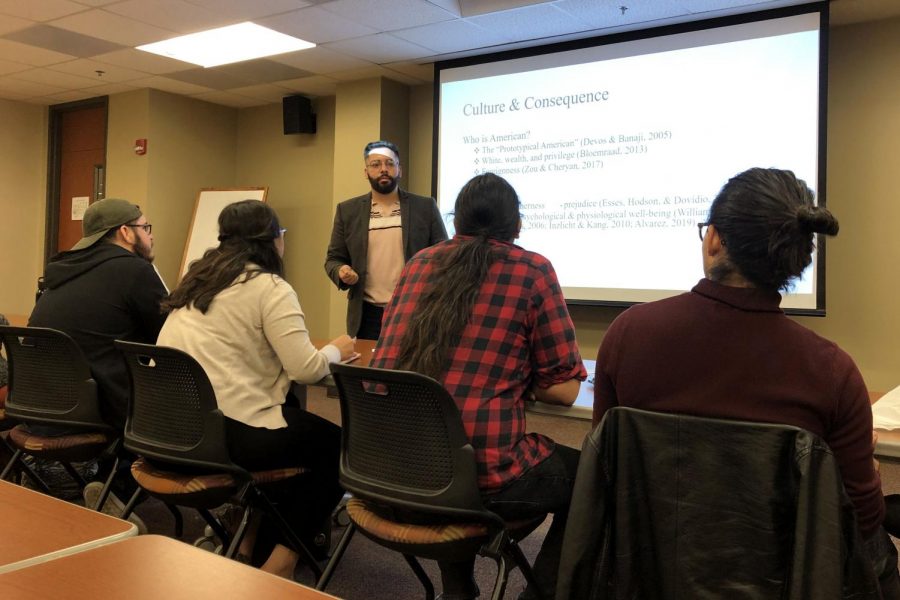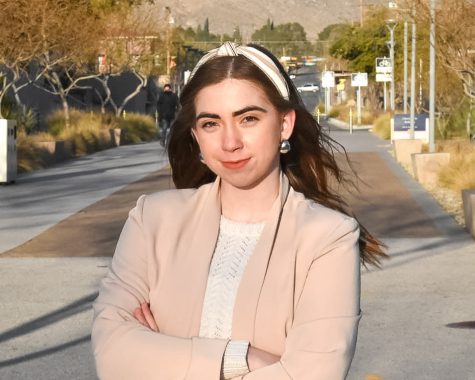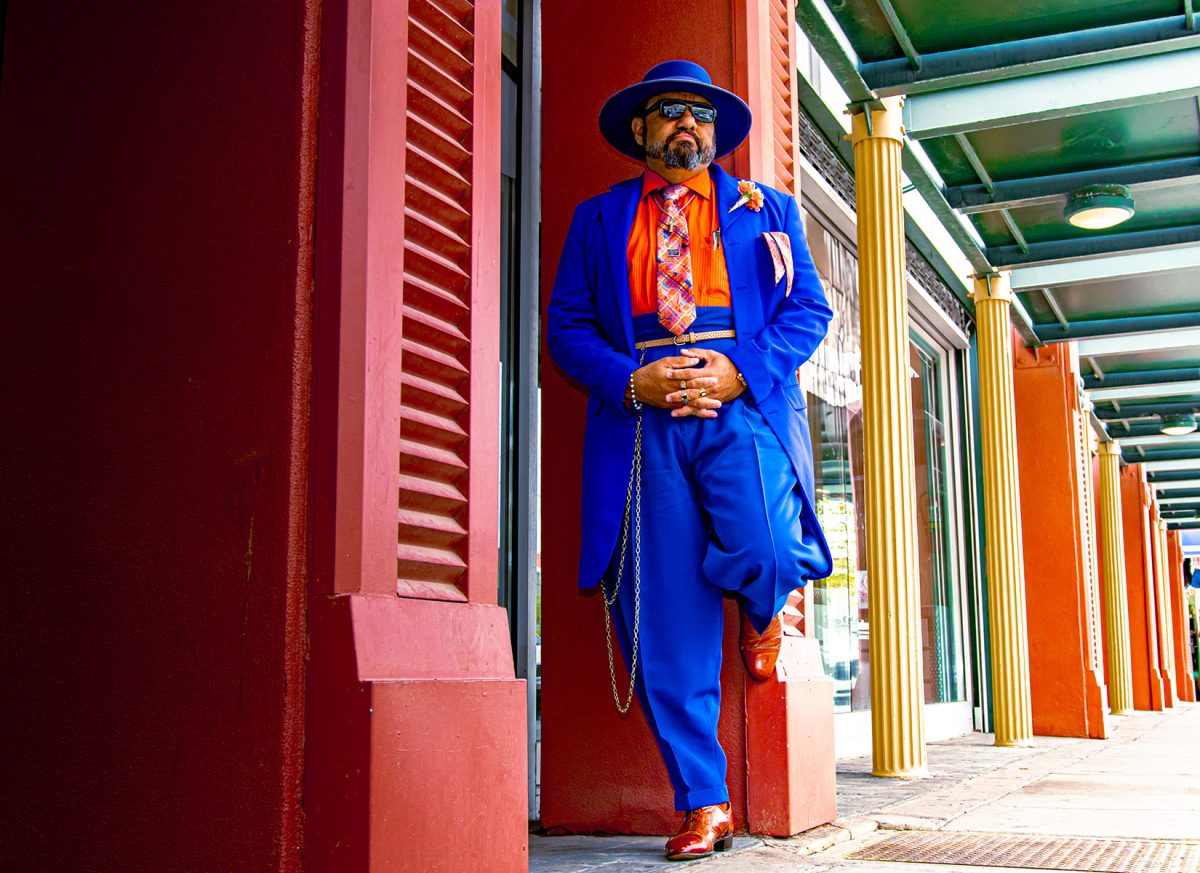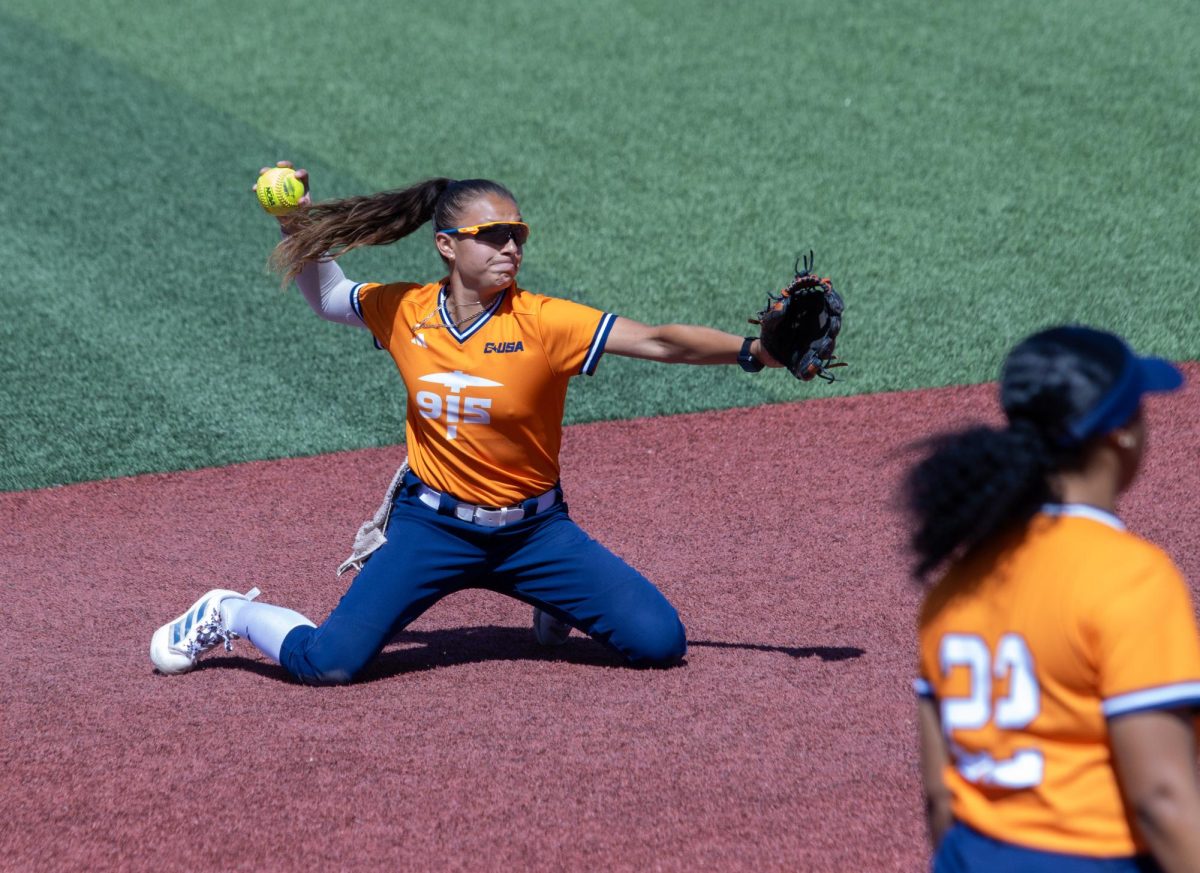The UTEP Student Engagement and Leadership Center (SELC) hosted an engaging and insightful discussion titled “The Good Old Days” where facilitator Angel Armenta used the theory of cultural inertia to further explain why some groups present hostility toward other cultures Wednesday, Oct. 30, in UTEP’s Union East.
The session was part of SELC’s This Matters series of discussions meant “to engage attendees in meaningful conversations that will lead to progressive, inclusive actions,” according to SELC’s description online.
Armenta is a graduate psychology student with a research background focused on prejudice. In his presentation, he discussed how the perceived “otherness” of a certain culture is a reliable indication that prejudice against another culture also exists.
“It is the cultural change in and of itself that leads to hostile and aggressive intergroup relations between majority and minority groups,” Armenta said during the talk.
According to Armenta, cultural inertia borrows heavily from Newton’s laws of motion in order to define the three main principles that the theories encompass.
Using Newton’s first law, “objects at rest will stay at rest,” Armenta explains how this concept applies to culture.
“We can think of culture as an object,” Armenta said. “Cultures that are not used to change and don’t welcome change, those are static cultures.”
Armenta then explains that the second principle of Newton’s first law, “objects in motion will stay in motion,” can be used to define dynamic cultures, which are the opposite of static cultures.
“These are cultures that are used to change, that embrace change, that enjoy change,” Armenta said.
For Newton’s third law of motion, “for every action there is an equal and opposite reaction,” Armenta said that it can be applied to the outward reaction that some groups have in response to cultural change.
“If you’re in a static culture, and you think that groups of individuals are going to come in and change your environment, you’re going to react in a way that is opposite of that, right? I might pass policies, or I might riot in order to continue my way of life,” Armenta said. “If you’re in a dynamic culture, you’re used to change. If you think maybe a group of politicians are going to come and make this dynamic culture more static, where nothing is going to change, then you might again react in a way to continue the dynamic.”
Armenta then broke down the results of a correlation study he helped conduct under Michael Zárate, a UTEP professor of psychology and Chicano studies and researcher in social cognition and prejudice.
In order to justify the theory of cultural inertia in the study, Armenta worked alongside other researchers in Zárate’s lab to collect data from participants in Iowa and Minnesota, two cities considered to have static cultures, and from New York City, a city with a dynamic culture.
The study’s findings supported the following proposed hypotheses: “1. White people led to believe that American culture is expected to change due to an influx of immigrants will express greater fear and greater anger; 2. Greater fear would be associated with greater in-group protection noted; 3. Greater expression of anger would be associated with greater out-group derogation.”
Although promising, Armenta laments that the study only scratched the surface of the research needed to be done on the cultural inertia phenomenon.
“With correlational studies, the results are promising, but I think that we need to test these ideas in an empirical environment,” Armenta said.
Despite this, many students who attended the event found Armenta’s presentation to be valuable and informative.
“I thought the way he explained everything laid a beautiful foundation for intellectual insight and awareness on immigration, cultural differences and cultural inertia,” said Lindsey Deharo, a graduate student and psychology major. “I really enjoyed it.”
After the presentation, attendees were encouraged to stick around and mingle to further discuss prejudice amongst themselves and with the speakers.
Margaret Cataldi may be reached at [email protected]












